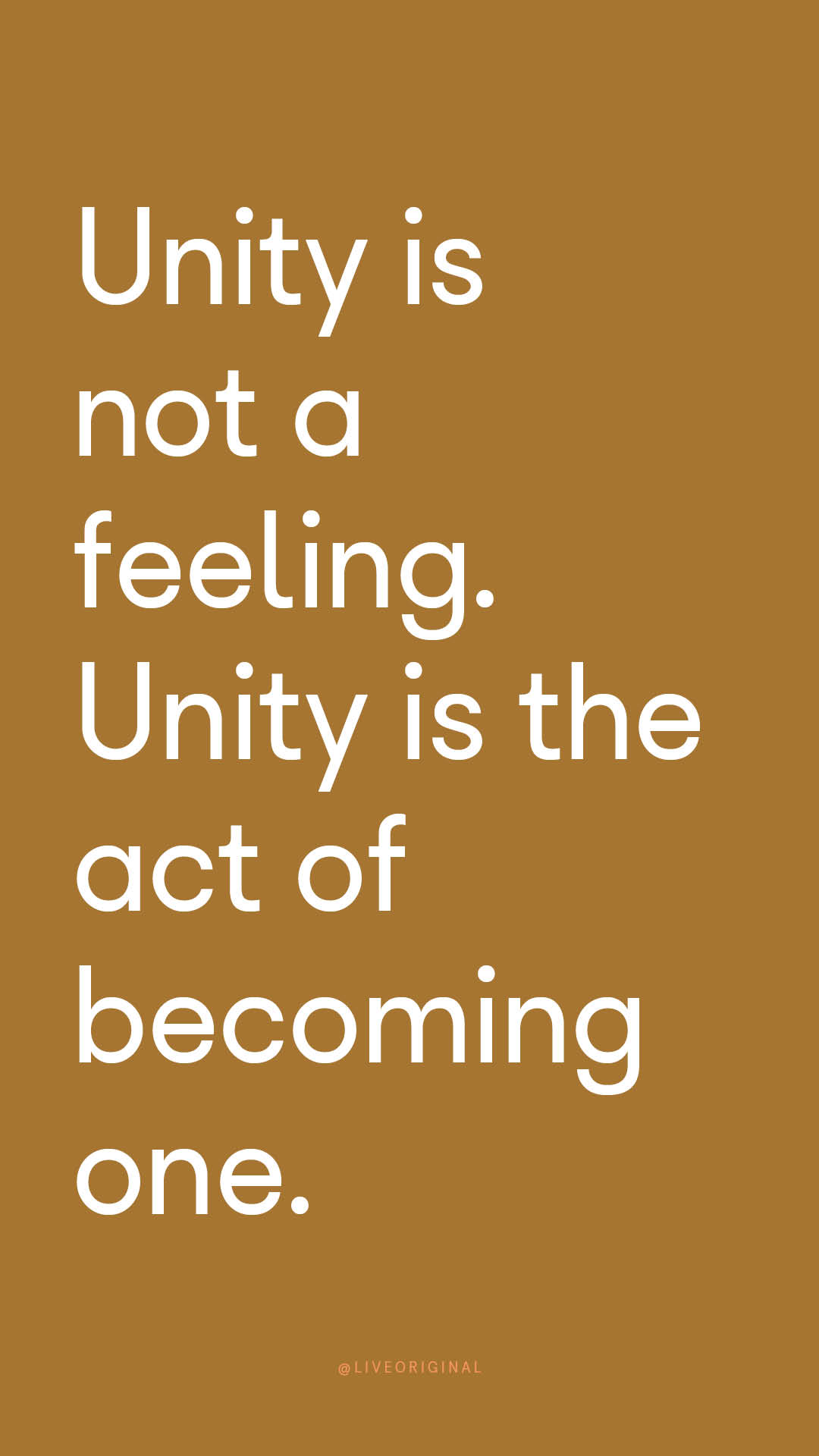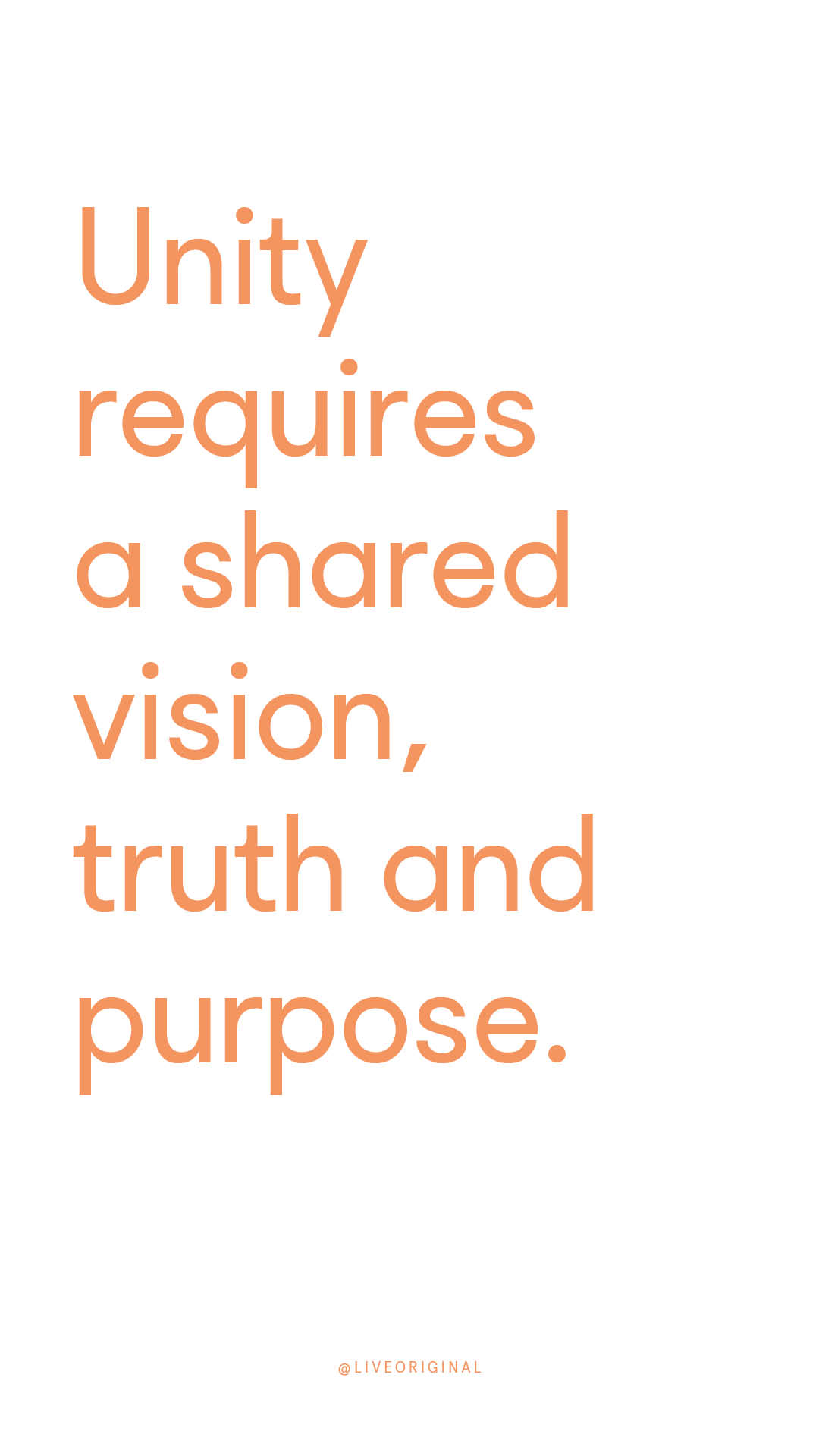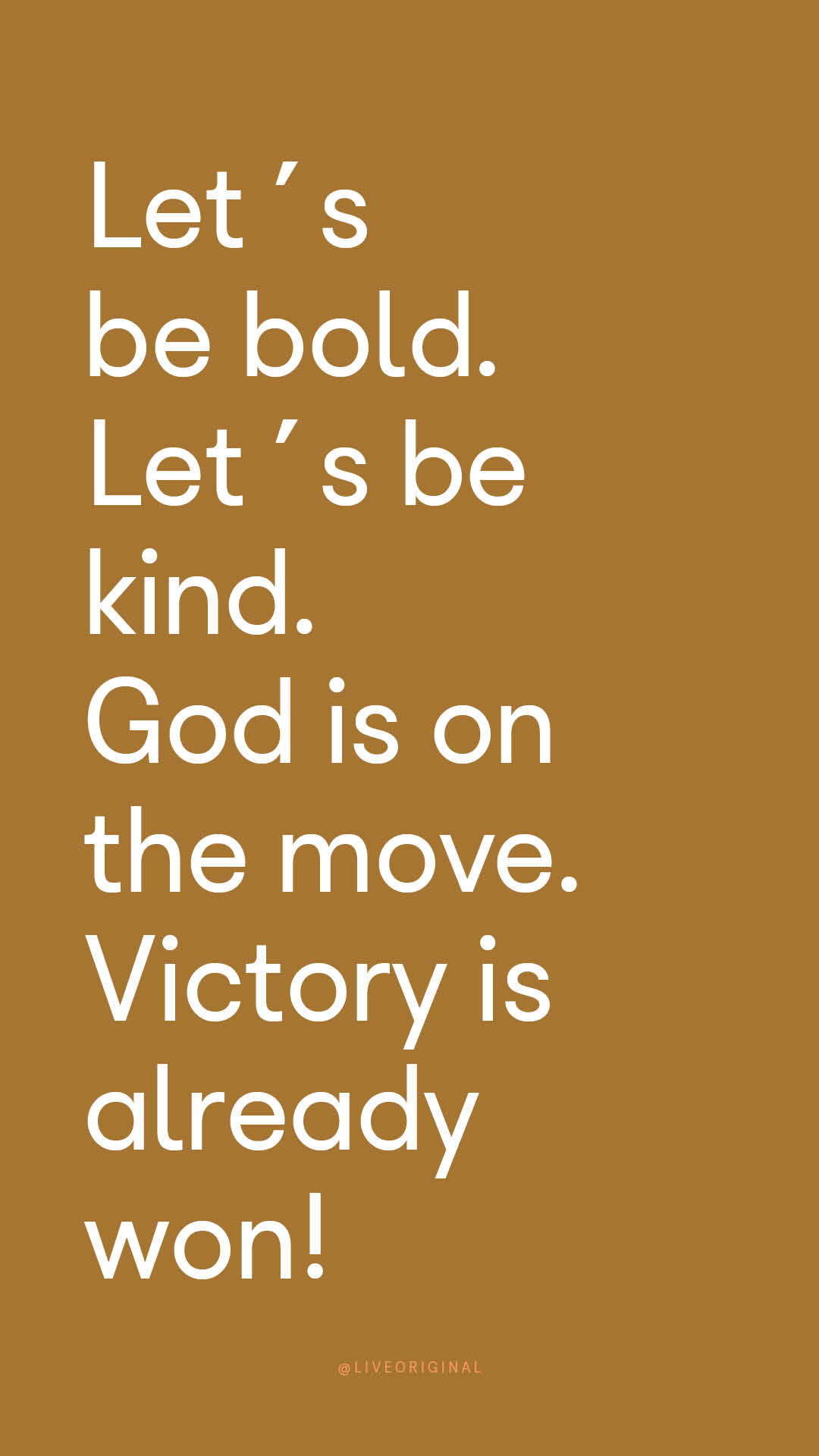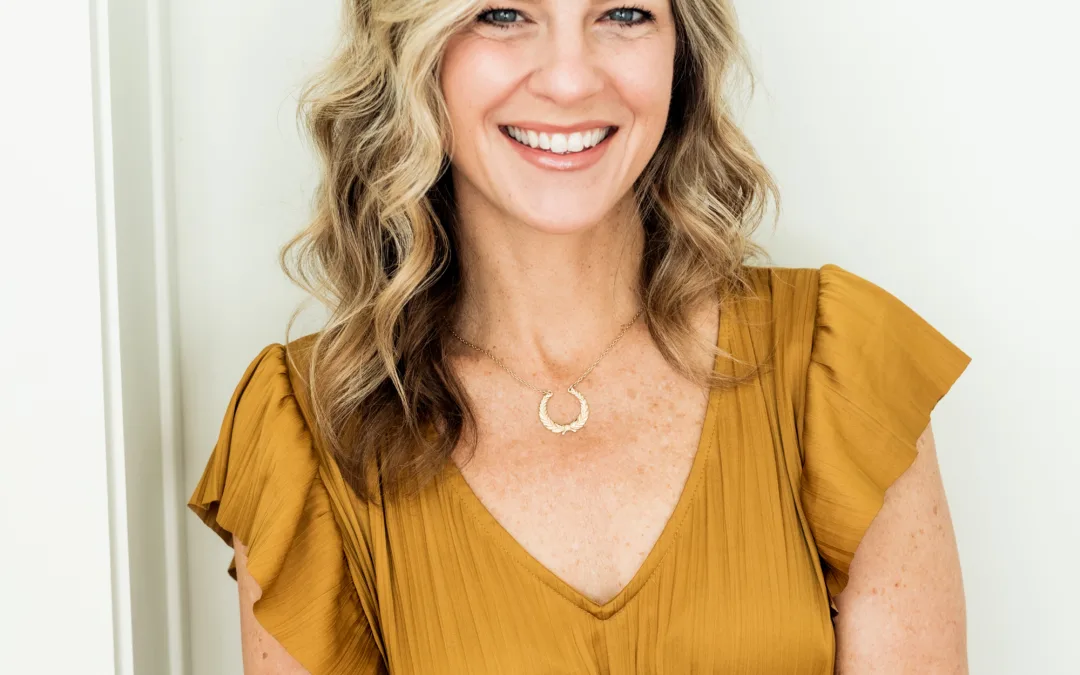
by Rebekah Lyons | May 2, 2023 | Life Advice
What is church? How do we define it when our definitions change over time and can depend on a number of variables such as the passing of time and the experience of crises? When do we lose track of what it means and how? How do we bring meaning back to the word? I wasn’t sure how to define church in early 2020, and if truth be told, before the lockdowns began, I didn’t even know I would have to revisit the concept of church.
The women had a front-row seat as the men in our circles experienced real life together—studying, praying, and serving each other. Together they were recreating the church of the first Christians. I wanted in, and other wives did as well. So we began our own weekly Bible study. Each Tuesday, we gathered as women—same structure, same vision. We entered inspired and hopeful. Eager and vulnerable, we tended to each other’s needs with a simple group text thread.
As we worked together in community, I was reminded of something the ancient apologist Blaise Pascal once wrote about a great wager that everyone must make. He urged his readers to bet on God in this wager, for “if you win you win everything”—truth, happiness, and the good—and “if you lose you lose nothing. Do not hesitate then; wager that he does exist.” Investing in community is the same kind of wager. If we win, we win a full and flourishing life, and if we lose, we’ve made a lot of friends to help us endure the hardship.
We began waking up together—waking to passion and purpose, to conviction, to what it means to be the church. Our awakening propelled us to be the hands and feet of Christ in the world around us. We were being revived one by one, and once we’re revived personally, we begin to be revived corporately.
Our community began hosting town hall meetings with local business owners, curating conversations with city leaders, laying groundwork for community gardens, planning schooling alternatives, and organizing medical support for frontline workers. Just as in the book of Acts, numbers were being added to the men’s Bible study and community initiatives by the day. The women were activated too, and we looked for ways to serve one another, starting a group text thread to facilitate needs.
Who needs prayer?
Who needs a meal or a care basket because of a loss?
Who needs a ride?
Anyone requiring a doctor recommendation?
Who needs a wedding venue because their previously chosen venue closed its doors?
It wasn’t just the text thread. We rolled up our sleeves and got about our work of being the church. We hosted “church” on our front lawn because we couldn’t forsake our “meeting together” (Hebrews 10:25). Family blankets took the place of pews. One family led worship from their blanket, with my friend Christy leading the chorus and her husband, Nathan, accompanying with his guitar. Another family read Scripture and led a discussion. Since each family brought their own Communion elements, other families led in the time of Communion and prayer. That afternoon, we were living what N. T. Wright described in his book Simply Christian: “The church is first and foremost a community, a collection of people who belong to one another because they belong to God, the God we know in and through Jesus.”
By early summer, the First Front Lawnist Church of Franklin was on a roll. Not only were we hosting worship gatherings, but on one beautiful May Saturday, we hosted a wedding for Molly and Peter, one of the men in this multigenerational community. Because every venue was shut down, we created our own. The families and several guests gathered—seated in a dozen or so wooden chairs under a canopy of trees, with wind chimes as our backdrop. A path meandered down the slope to a short hop over the stream for the bride’s entrance. It was a full Lyons family affair, with Pierce playing guitar, Joy serving as the flower girl, and Gabe and I reading the Scriptures. It was glorious.
Real-life church services brought a breath of fresh air, particularly for our kiddos. The extended isolation was hitting them hard, especially those with differing abilities who were nonverbal. During the many months of not meeting together, events were canceled, including our annual Best Buddies prom. Live events were substituted with online events, which weren’t necessarily helpful for everyone, including Cade.
A couple families had seen how much our in-person community lawn gatherings had helped Cade, and they decided to put on the best prom ever for Cade and many friends in our community. The prom took place in a local “party barn” donated for the event—complete with a red-carpet walkway, massive balloon arch, photo booth, and a step and repeat banner photo backdrop. The meal included chicken tenders and sparkling sodas. Cade wore a tuxedo and escorted his date, Kennedy, who wore a floor-length blue silk dress. They danced the night away with more than fifty friends, all of whom were desperate to celebrate together. It was the highlight of their spring.
In our first five years in Franklin, we thought we had been “doing community.” We attended church regularly and would often have people in our home for dinner or impromptu parties. In 2020, we learned a different way of being a true Christian community. It was the kind of community that depended on one another, not just as some sought-after Christian ideal, but as a genuine mechanism for flourishing. We depended on one another for even our most basic needs—food, fellowship, and even the occasional financial need. We came to realize that resilient lives are not formed in isolation; resilient lives are forged in community.
We Are a Communal People Created by a Communal God.
In what became known as his “farewell discourse,” Jesus prayed for a unified community, a collective church that was bigger than any one individual:
“My prayer is not for them alone. I pray also for those who will believe in me through their message, that all of them may be one, Father, just as you are in me and I am in you. May they also be in us so that the world may believe that you have sent me. I have given them the glory that you gave me, that they may be one as we are one—I in them and you in me—so that they may be brought to complete unity. Then the world will know that you sent me and have loved them even as you have loved me.”
(John 17:20–23)
In the same way that God has inherent interpersonal relationship between the Father, Son, and Holy Spirit, so Jesus prays that we will be image bearers of God in the way we participate in our own community. In the book of Acts, we see the first vision of Jesus’ prayer come to fruition when the Holy Spirit is poured out on the people of God and the church comes into existence.
Jesus recognized that the church is made up of individuals who believe in him, but he did not simply pray for “them alone.” He prayed for them together—in community. He prayed for our relationship with one another, that we would experience the kind of relationship he has with God the Father—a relationship of complete unity. As we saw in the previous chapter, that prayer for unity came to life in the earliest gatherings of the church. It came to life in our own gatherings too.
What did we find?
In a unified community, we found a more holistic version of resilience. We became an unshakable community that helped meet one another’s needs. This began to spread to our broader community among friends in other cities. We are far more resilient as a whole community than as self-sufficient individuals. The difference is staggering. When the Holy Spirit unites his people, the church, through consistent commitment to the Scriptures, prayer, and one another, a holistic resilience emerges that becomes unshakable both in the individual and in the group. It’s an irrepressible force that creates a more resilient world.
We Were Made to Need One Another
We live in an individualistic society, one that teaches us that self-sufficiency is resilience. We were not made to resist adversity alone; we were made to have our needs met in community, which is why resilience isn’t cultivated in a vacuum. In fact, the Centers for Disease Control and Prevention recognizes the role of community in building resilience: “Community health resilience measures the ability of people, businesses, governments, nonprofit groups, and faith-based organizations to work together to create systems that can withstand, adapt to, and recover from a public health emergency.”
Research shows that a strong support system or resilient community during times of adversity allows us to bounce back. Many of us don’t need a research study to tell us what we already know. Why is community so important in building resilience?
True community reminds you who you really are. A community of like-minded people calls forth the character and integrity they believe you embody. They hold you accountable so that your inside matches your outside, your private life matches your public life. It reminds you that you’re stronger than you think, you’re braver than you think, you’re more loved than you think. Christ-centered community encourages you to grow in connection to Christ too, which makes you infinitely more resilient. That “calling forth,” particularly when done in love and consistent community, creates true belonging. It gives you permission to be known and to know others. When you belong, you are beloved and your gifts are seen and celebrated—and when your gifts are seen and celebrated, they can be used.
Rebekah Lyons is a national speaker, host of the Rhythms for Life podcast, and bestselling author of Rhythms of Renewal, You Are Free, and Freefall to Fly. An old soul with a contemporary, honest voice, Rebekah reveals her own battles to overcome anxiety and depression–and invites others to discover and boldly pursue their God-given purpose. Alongside her husband, Gabe, Rebekah finds joy in raising four children, two of whom have Down syndrome. Her work has been featured on The TODAY Show, Good Morning America, CNN, FOX News, Publishers Weekly Starred Reviews and more. Her latest book, Building a Resilient Life: How Adversity Awakens Strength, Hope and Meaning will be available nationwide May 2, 2023.
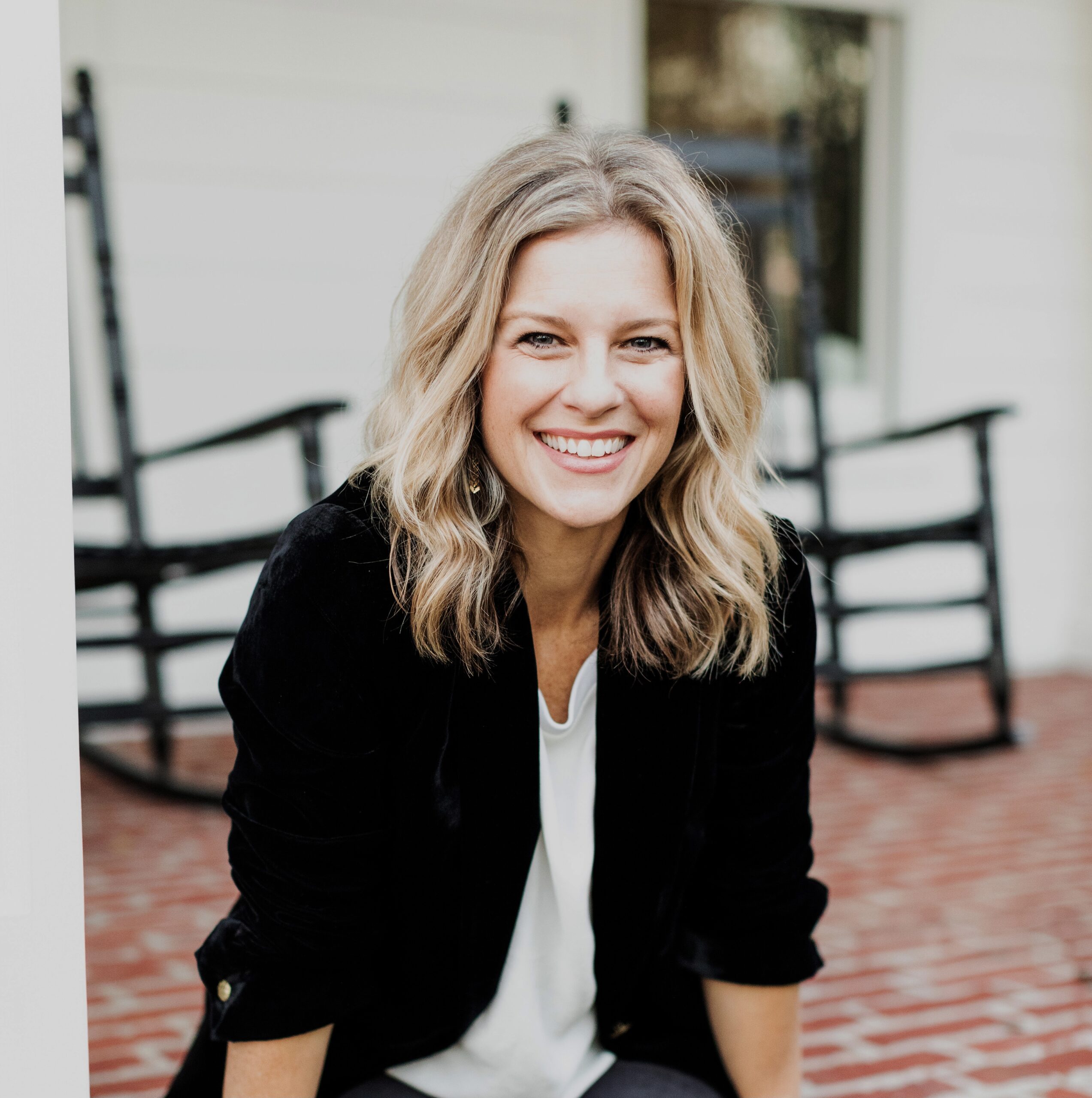
by Rebekah Lyons | Sep 16, 2021 | Life Advice, Wisdom
A few months back I met some friends for impromptu burgers and fries, and in my attempt to let off some steam, I shared a bit more intimately than was appropriate for this particular group setting. I immediately wanted to take back my last couple of sentences, but there they were, hanging out there, for everyone to take in. My attempt to confide went sideways. I couldn’t get to my car fast enough. I learned that day to be thoughtful about what to share, when to share, and with whom to share. Group settings aren’t always the best places for vulnerable conversations that require more explanation. You can risk being misunderstood at best, judged at worst.
As you develop your own trusted circle, as you find the right people, keep revealing your deepest self with them. After all, while vulnerability with the wrong sorts of folks fosters feelings of inferiority and judgment, vulnerability with the right people brings trust, bolsters our feelings of love, and brings hope.
I have a handful of girlfriends who have taught me the power of vulnerability. Some I’ve known since high school, while others I met in my twenties. These friends have helped me when I needed comfort and challenged me when I needed confrontation. When I opened up about my anxiety and panic years ago, they met me in my most vulnerable place and helped me believe wholeness was possible. And though the text thread topics have moved on from toddler life to our newbie teen drivers having fender benders, we are committed to showing up.
The thing that has kept me close to each of these women is their willingness to be vulnerable. There’s a safety in walking through highs and lows over the years, in giving and receiving grace. In so many ways, their friendships have reflected to me what God’s love looks and feels like over the long haul. God invites me to share vulnerably with him, to lay it all bare, and as I do, he becomes my safe place, my refuge. He frees me from the opinions of others and the worries of my own heart. He shows me how to receive abundantly so I can serve others, not out of my strength but his. He teaches me how to make space for the vulnerability of others too.
Perhaps you’ve tried to share your heart with a trusted friend, parent, or spouse, and somewhere along the way you were shamed for those feelings. Instead of being held, cherished, and understood, you felt the sting of betrayal. I know this pain, but that doesn’t mean we should stop being vulnerable. The enemy of our souls wants us to be isolated and alone because these feel- ings make us easy prey. Why? When we’re alone and vulnerable, we feel afraid. When we’re together and vulnerable, we become brave.
Make the effort to connect—really connect in true vulnerability—with those you love. Your courage to bring your whole, beautiful self out into the open just might inspire them to do the same. In that vulnerable connection, you’ll bolster each other’s courage, give each other love, and point each other to God, who can strengthen you even in the darkest hour.
Reflect
Have you allowed yourself to be vulnerable with those you love, with those who love you? Or do you tend to hold back your whole, authentic self? Find one person you trust, reach out to them this week, and say what’s on your heart. Ask them what’s on theirs. Pray that God would allow security in your relationships so that this confessional practice becomes more regular and joyful.
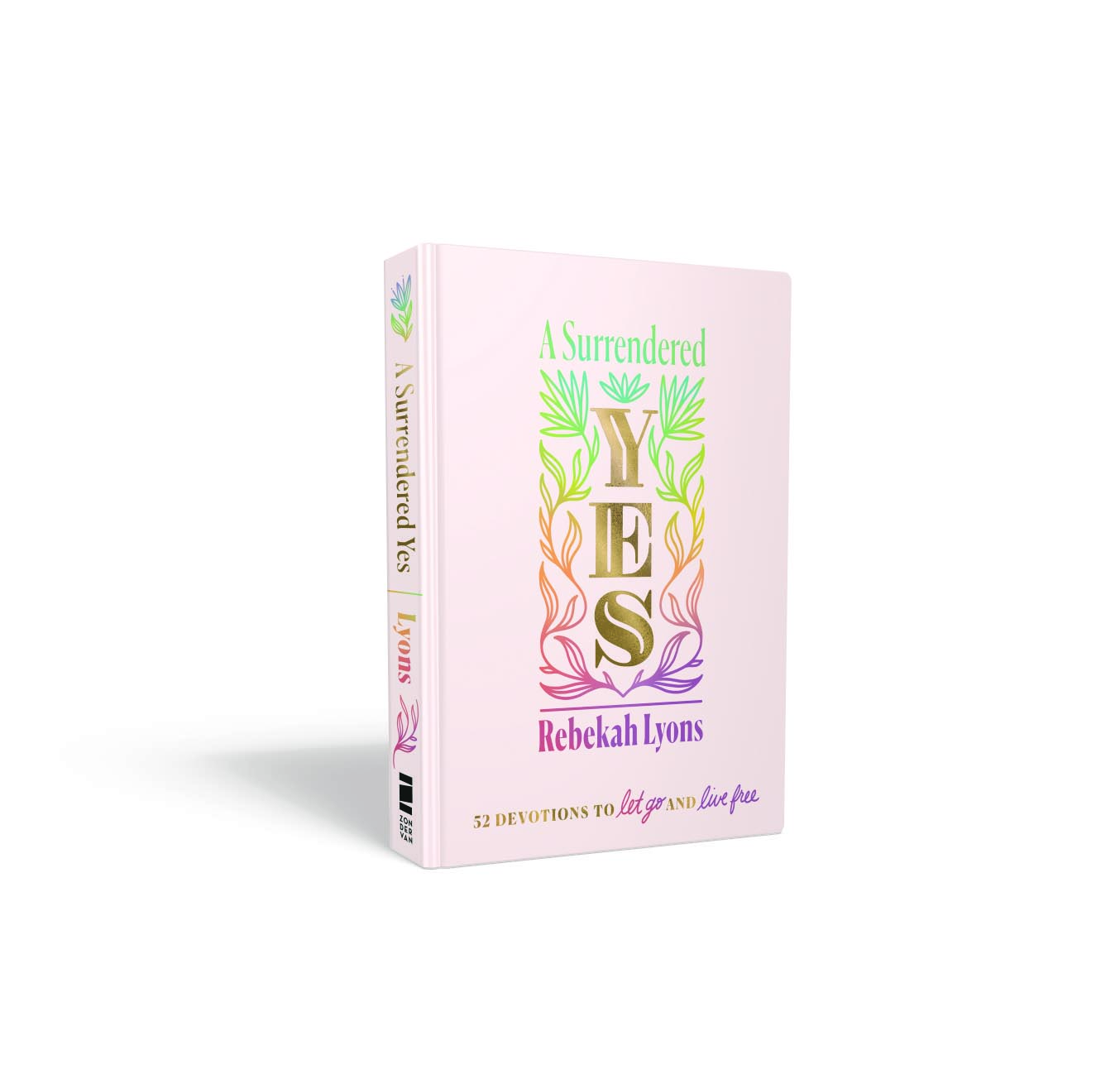 Rebekah Lyons is the author of A Surrendered Yes, Rhythms of Renewal and Freefall to Fly. She is a mother of four wife of one, and dog walker of two living in Nashville. An old soul with a contemporary, honest voice, Rebekah reveals her own battles to overcome anxiety, depression, and consumer impulses. Finding joy in raising a special needs child—she invites everyone to embrace the unique calling God has for each of us. Rebekah wears her heart on her sleeve, a benefit to friends and readers alike.
Rebekah Lyons is the author of A Surrendered Yes, Rhythms of Renewal and Freefall to Fly. She is a mother of four wife of one, and dog walker of two living in Nashville. An old soul with a contemporary, honest voice, Rebekah reveals her own battles to overcome anxiety, depression, and consumer impulses. Finding joy in raising a special needs child—she invites everyone to embrace the unique calling God has for each of us. Rebekah wears her heart on her sleeve, a benefit to friends and readers alike.
Alongside her husband, Gabe, Rebekah serves as cofounder of Q Ideas, an organization that equips Christians on how to winsomely engage culture. Her favorite hours are spent with her nose in a book and a discriminating cup of coffee in hand. You can get a copy of her new devotional here!
Follow Rebekah on Instagram @rebekahlyons
Taken from A Surrendered Yes by Rebekah Lyons. Copyright © 2021 by Rebekah Lyons. Used by permission of Zondervan. www.zondervan.com.
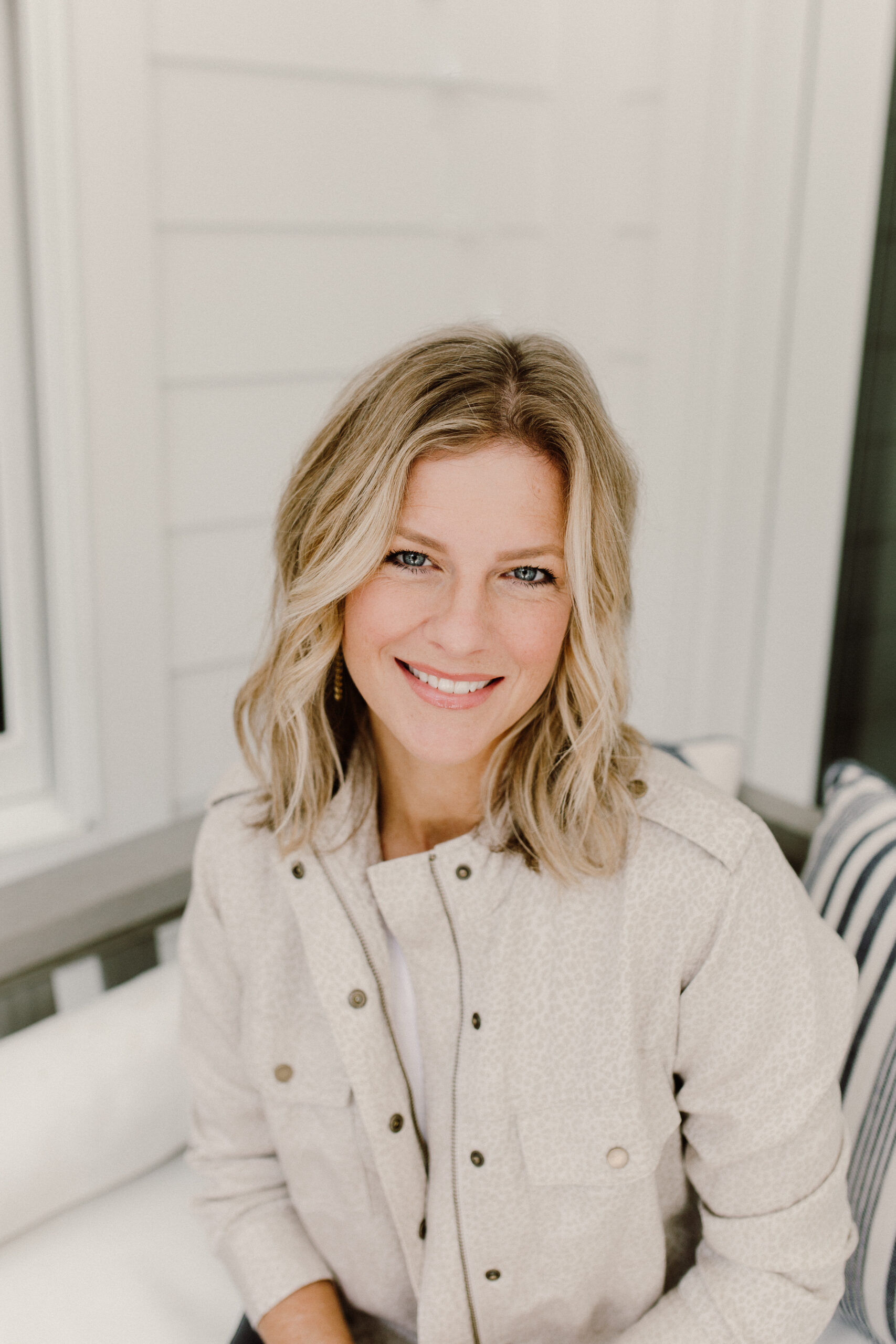
by Rebekah Lyons | Oct 20, 2020 | Life Advice
In a crazy year of chaos culminating with the most divisive elections of our generation, wouldn’t it be wonderful if we could all get along? Why is there so much tension and turmoil? Perhaps it stems from confusion on what actually makes unity possible. Here are some popular beliefs…
We would get along if we were all the same.
We could be unified if we looked past our differences.
We would experience unity if we spent more time together.
These are well-meaning ideas, about how we could feel more unified. But they never achieve lasting unity. Unity isn’t a feeling. It isn’t attained by finding the ways we look, act or think the same, or even by tolerating differences.
Unity is the act of becoming one.
Jesus felt strongly about this. So much so, that he prayed into this vision of unity in an urgent and earnest prayer, his longest prayer in the final hours before his arrest and being sent to the cross.
I love the colorful detail in John 13 through 17, four chapters I refer to as, “the great commencement speech of Jesus.” It was his final meal with his besties, twelve disciples he spent almost every minute of every day walking alongside for three years. They watched him introduce a new kingdom, heal the sick, confront prideful religious leaders, raise the dead to life, and sneak away from the crowds for quiet retreats.
At the close of their final meal, Jesus begins to pray for these kindred friends but he doesn’t stop there. Jesus immediately expands his prayerful vision for all future Christians, the Church going forward. Yep. Jesus prayed that night for you and me and what we would face right now in 2020. What was the key ingredients Jesus was asking for?
“I pray also for those who will believe in me through their message,21 that all of them may be one, Father, just as you are in me and I am in you. May they also be in us so that the world may believe that you have sent me. 22 I have given them the glory that you gave me, that they may be one as we are one— 23 I in them and you in me—so that they may be brought to complete unity. Then the world will know that you sent me and have loved them even as you have loved me.”
Unity requires a shared vision, truth and purpose.
Jesus shared something critical for us to understand, tucked into His prayer for the future church. Our unity was to be a replica of what Jesus, himself, had with the Father. Their unity centered around a shared vision, grounded in truth, united in purpose.
First, unity is established through a shared vision.
Jesus knew the point of his ministry, death and resurrection was to take the punishment for sin, once and for all. That’s why he said, “I have glorified you on earth by completing the work you gave me to do.” (John 17:4) This was his shared vision with the Father. Up until that point, the priests had to bring an annual sin offering for the sins of the people, but NO MORE. God would write a new covenant on their hearts (and ours as well) that God would never from that day forward “remember their sins or lawless acts”. Hebrews 10:17 Christ’s death was the only thing that could free humanity from the bondage of sin, forever. We can still try a million ways to be free from our bondage, addiction, depression, anxiety and more, but Jesus is still our only way to be truly FREE, today.
Second, unity is grounded in a singular source of truth.
Our culture is constantly talking about “my truth” and “your truth.” But the only way the church can have unity is through Jesus who is truth. In fact, Jesus declares this when he answers, “I am the way and the truth and the life. No one comes to the Father except through me.’ (John 14:6) There isn’t truth apart from Jesus. Unity cannot exist if we don’t operate from the same truth beyond ourselves. That’s why the armor of God begins with the belt of truth, because God’s word is truth. Jesus prayed, “Sanctify them by the truth, your word is truth.” John 17:17 If we cannot discern truth from a lie in a culture of deception, we are dead in the water. Truth cannot have unity with lies.
Third, unity in propelled by a shared purpose.
What is God’s purpose for the Church, the future Christians Jesus prayed for? That we would be a group of people unified (Ephesians 4:1-3) in submission to Christ, who represent and reflect Him to the world (1 Corinthians 12:12-17). Plain and simple. Why was it so important to Jesus for our purpose to be a people of unity? So the world would know God’s love for them. “Then the world will know that you sent me and have loved them even as you have loved me.” John 17:23 You cannot have unity with people who don’t have a shared theology of this.
While we all enjoy a variety of people, especially with those we share common interests or hobbies, the deepest unity can only be found when we share the same foundational beliefs. For example, when we find ourselves in deep conversations with friends who operate from a different set of beliefs about God, truth and the meaning of life, we shouldn’t be surprised that finding “oneness” is a challenge. That doesn’t mean we don’t pursue, love, befriend and persuade, but it explains why our deepest solidarity will always be found with fellow believers. Our shared beliefs as Christians around the biggest questions every human being asks bonds us.
Where did we come from? Creator God
What is wrong in the world? Sin and evil.
How do we make it right? Jesus death and resurrection.
Where do we find purpose in life? Ministry of reconciliation.
We may look at this election year with discouragement at the polarizing perspectives, but nothing has happened in 2020 that hasn’t already been sifted through God‘s hand. One of my favorite quotes of 2020 is found in a book of liturgies, Every Moment Holy, by Douglas McKelvey, “You apprehend a wider sweep with wiser eyes than mine.” We don’t understand this year, or where our culture is going, but more importantly, do we trust in the One who does? Do we believe he holds all things together beyond this election?
In the end, the Christian life cannot have true unity with a perspective that denies Jesus as God. But don’t be dismayed, Jesus said, “If the world hates you, remember that it hated me first.” John 15:18 He also said, “In this world you will have trouble. But take heart! I have overcome the world.” John 16:33. What a promise! Jesus took death so that we could have life.
Let’s be bold. Let’s be kind. God is on the move. Victory is already won!
Rebekah Lyons is a national speaker and bestselling author. An old soul with a contemporary, honest voice, Rebekah reveals her own battles to overcome anxiety and depression—and invites others to discover and boldly pursue their God-given purpose. Alongside her husband, Gabe, Rebekah finds joy in raising four children, two of whom have Down syndrome. She wears her heart on her sleeve, a benefit to friends and readers alike. Her work has been featured on the TODAY show, Good Morning America, CNN, Huffington Post, The Tennessean, Publisher’s Weekly, and more.
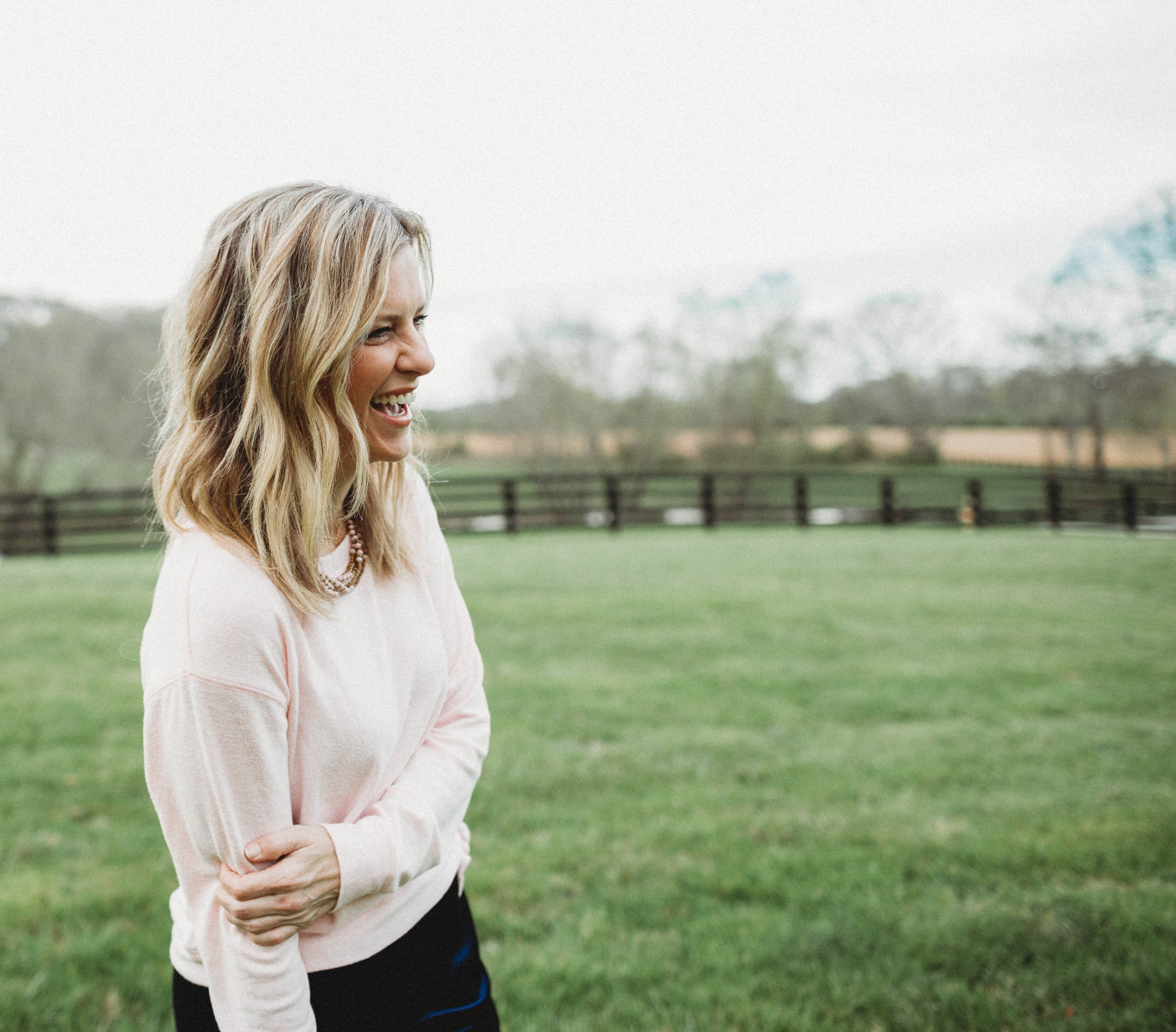
by Rebekah Lyons | Oct 25, 2019 | Life Advice |
I’ve been struck by how many conversations revolve around our labels. “I’m ADD, OCD, manic, depressed, disabled, handicapped, diabetic . . .” The list goes on and on. We throw out labels as if they clarify who we are, maybe even our most defining marks. We use these descriptors as a way of helping people keep their expectations of us in order. The problem is, when we use one of these labels to describe ourselves, they often give us our deepest sense of identity. We believe the lie that the label defines us. We shift from believing a particular label is something we face to believing it’s someone we are.
Labels are powerful things we can misconstrue as our identities. But what if we came to understand that labels don’t define us? That, instead, they are an explanation to help the world understand things we’ve dealt with or come up against? When we don’t view our identity through a label, we’re able to find ways to thrive in spite of whatever label we are living under. This mindset helps us turn from despair to hope in action.
When I faced panic attacks eight years ago, I didn’t have a diagnosis for what was happening. Looking back, it was a grace because this kept me from giving myself a label that I could make part of my identity and give up thinking I could live any other way. Instead, I tried new approaches to try and overcome my fear of being trapped in tight spaces. Each day I prayed for a heavy dose of peace and courage, and then tried to push through my claustrophobia via exposure. I continued to approach subways, elevators, and crowds, scary as it was. Some days I was successful, and some days I’d retreat. But the game-changer was learning who Christ really made me to be and discovering my true identity.
Over time, the small spaces lost their scariness. I didn’t hesitate to hop on an elevator or a subway train. And although my panic attacks began years ago on an airplane, I now hop on an airplane on many Fridays in order to share the healing journey of these rhythms with people around the country. The irony is not lost on me. My pain became my purpose.
Today, 76 percent of us believe we best “define ourselves” by looking within.[1] That is, if we stare deep into our psyches and evaluate our feelings, personalities, passions desires, and even addictions long enough, we will discover our true selves. But looking only at ourselves can bring disillusionment and lead us to an empty place. Why? Because though our internal realities are true, they don’t define us. They don’t always show us who we really are. After all, isn’t the self always growing? Isn’t the soul oriented toward God always changing on its journey to eternity? Staring into a mirror might show us what we look like in the moment, but it cannot show us who we are or where we’re going.
So how do we find our true identity, who we are and where we’re going? The Christian faith leads us beyond the trappings of ourselves and into an identity rooted in something more solid, more immovable—God himself. Identity in him is trustworthy and unchanging.
When our identity is found in who God says we are rather than in our highs and lows, our successes and failures, or our desires, affections, or shortcomings, we experience the freedom we were meant to enjoy. When I need to be reminded of this, I read this list of phrases that tell me the truth about who God says I am, and it always helps:
I am a child of God. (John 1:12)
I am a new creation. (2 Corinthians 5:17)
I am a friend of Jesus. (John 15:15)
I am created by God to do good. (Ephesians 2:10) I am free in Christ. (Galatians 5:1)
I am chosen and loved. (1 Thessalonians 1:4)
I am the light of the world. (Matthew 5:14)
I am not ruled by fear. (2 Timothy 1:7) I am forgiven. (Colossians 2:13)
I am God’s possession. (Titus 2:14)
I am free from the desires of the flesh. (Galatians 5:24) I am a light in the world. (Matthew 5:14–15)
I am secure in him. (1 Peter 1:3–5)
I am loved by God. (1 John 4:10)
If you have worn your own identity label like a name tag, take a moment to ask God who you are in him. Root yourself deep in that identity. Then, with an identity rooted in the God who gives wisdom, strength, and love, go out into the world, secure and confident in who you really are.
“Labels Don’t Define You” is an excerpt from Rebekah’s latest book, Rhythms of Renewal: Trading Stress and Anxiety for a Life of Peace and Purpose. To keep reading, you can find a copy here.
Also, Check out Rebekah’s podcast where she and Sadie dive even deeper to this topic of identity here.

Rebekah Lyons is a national speaker and bestselling author. An old soul with a contemporary, honest voice, Rebekah reveals her own battles to overcome anxiety and depression—and invites others to discover and boldly pursue their God-given purpose. Alongside her husband, Gabe, Rebekah finds joy in raising four children, two of whom have Down syndrome. She wears her heart on her sleeve, a benefit to friends and readers alike. Her work has been featured on the TODAY show, Good Morning America, CNN, Huffington Post, The Tennessean, Publisher’s Weekly, and more.
[1] David Kinnaman and Gabe Lyons, Good Faith: Being a Christian When Society Thinks You’re Irrelevant and Extreme (Grand Rapids, MI: Baker Books, 2016), 34.











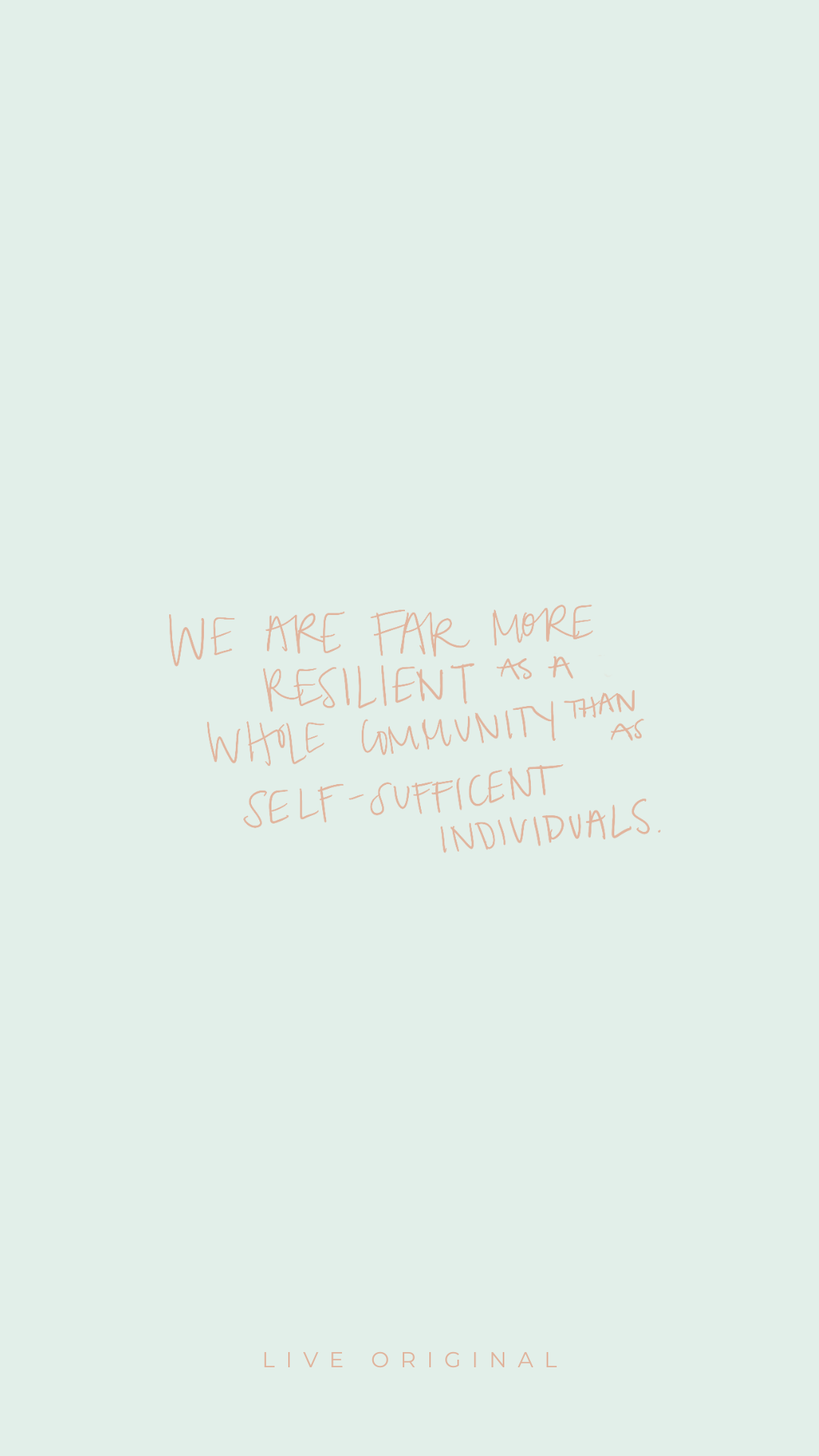
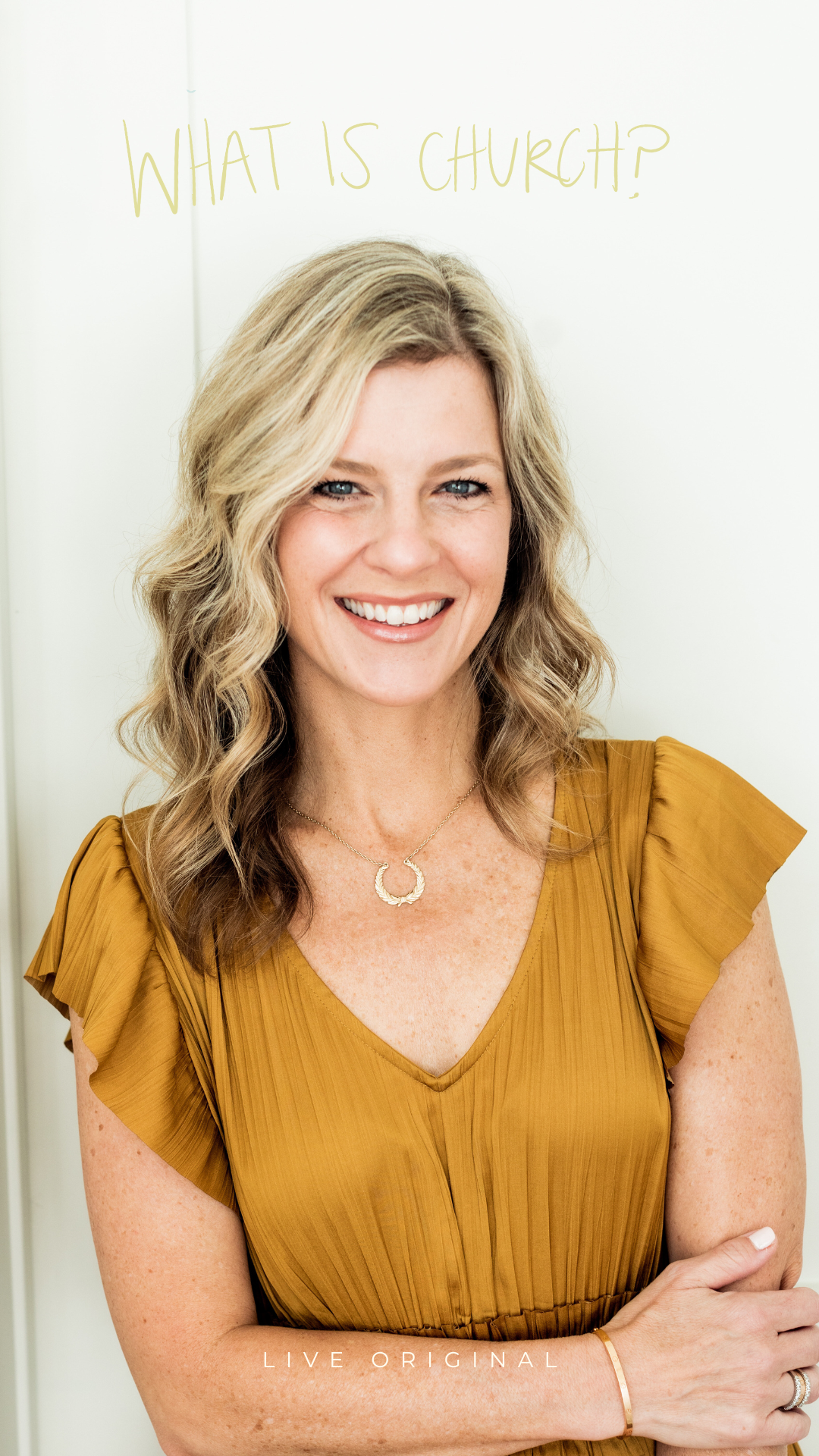
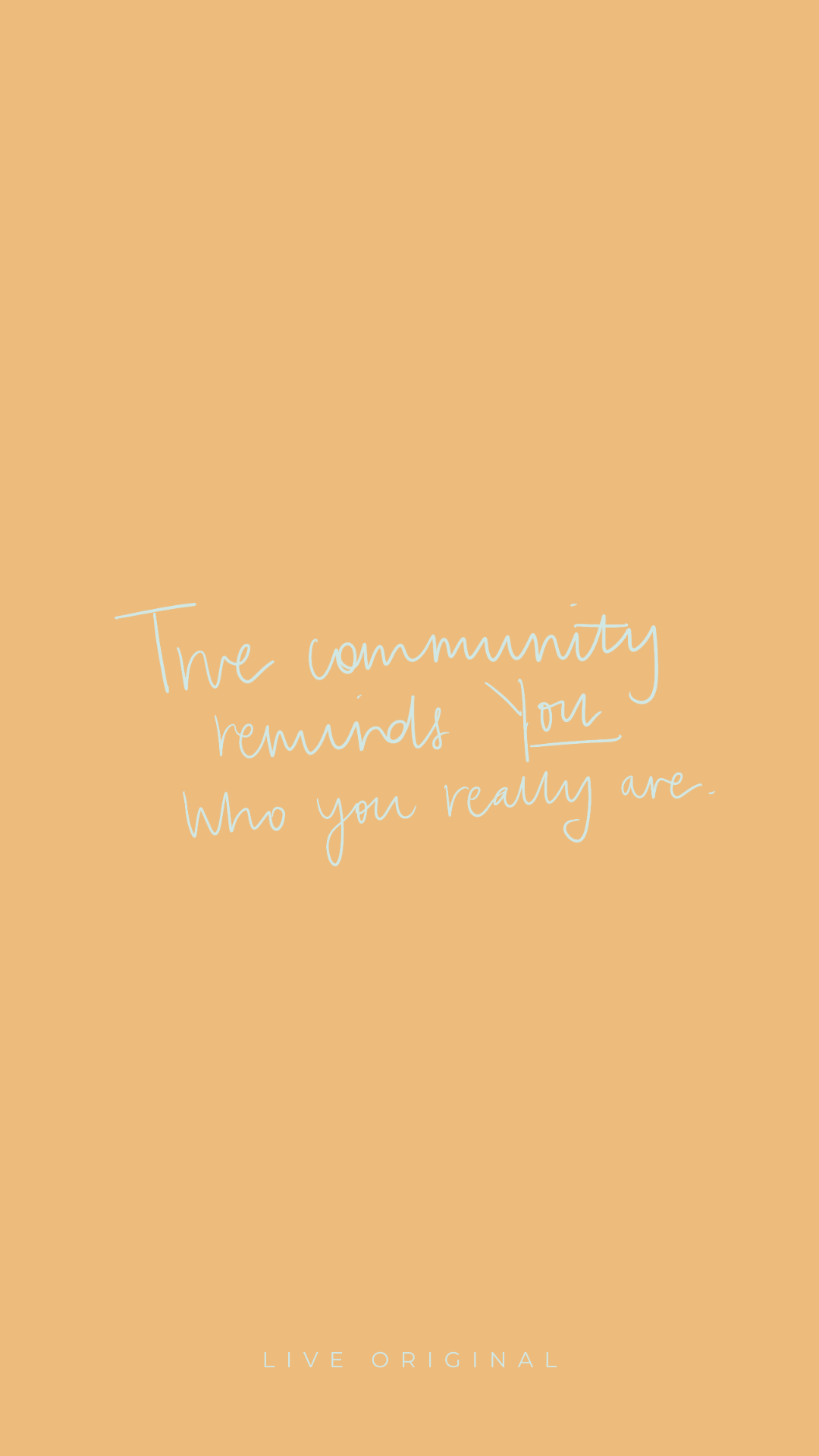




 Rebekah Lyons is the author of A Surrendered Yes, Rhythms of Renewal and Freefall to Fly. She is a mother of four wife of one, and dog walker of two living in Nashville. An old soul with a contemporary, honest voice, Rebekah reveals her own battles to overcome anxiety, depression, and consumer impulses. Finding joy in raising a special needs child—she invites everyone to embrace the unique calling God has for each of us. Rebekah wears her heart on her sleeve, a benefit to friends and readers alike.
Rebekah Lyons is the author of A Surrendered Yes, Rhythms of Renewal and Freefall to Fly. She is a mother of four wife of one, and dog walker of two living in Nashville. An old soul with a contemporary, honest voice, Rebekah reveals her own battles to overcome anxiety, depression, and consumer impulses. Finding joy in raising a special needs child—she invites everyone to embrace the unique calling God has for each of us. Rebekah wears her heart on her sleeve, a benefit to friends and readers alike.
